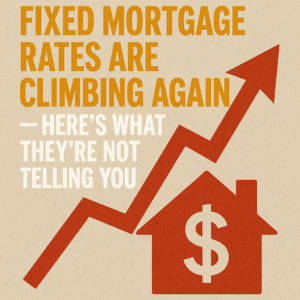The 2026 housing market isn’t just “shifting”—it’s evolving into something we haven’t seen before. From a new “Renter Revolution” to the squeeze on young families, the rules of the game have changed.
At DLC Supreme, we’re cutting through the noise. Here’s the “no-nonsense” breakdown of what’s happening and—more importantly—how you can win.
🛑 1. The First-Time Buyer Squeeze
Young Canadians (25–34) are working harder but, thanks to inflation, effectively earning less than they were years ago. The gap between a paycheck and a down payment is wider than ever.
-
The Move: Forget “traditional” paths. We’re helping clients get creative with flexible lending, co-signing strategies, and low-down-payment programs to get them into the game before prices climb further.
🏗️ 2. The Invisible Inventory Trap
Housing starts are sliding toward historic lows. Developers are hitting the brakes on new houses and condos, which means the “supply” problem isn’t going away—it’s getting tighter.
-
The Move: When supply is low, speed is everything. A pre-approval isn’t just a piece of paper in 2026; it’s your VIP pass to beat out the competition for the few homes available.
📈 3. The “Renter Nation” Revolution
For the first time ever, developers are building more rentals than homes for sale. Canada is shifting toward a European-style rental model.
-
The Move for Investors: This is your “Green Light.” Demand for quality rentals is sky-high. If you’ve been on the fence about becoming a landlord, the market is literally being built for your success right now.
📍 4. Don’t Believe Every Headline
The market in Ontario isn’t the same as the market in the Maritimes. While some big cities have inventory, other regions are seeing a “decade-low” drought of listings.
-
The Move: Don’t follow national trends—follow local data. We help you analyze the specific neighborhood you’re eyeing to ensure you aren’t overpaying in a cooled zone or under-offering in a hot one.
🛒 5. The “Grocery Store” Factor
Inflation is a sneaky thief. Even if interest rates stabilize, the soaring cost of food is eating into your mortgage qualifying power.
-
The Move: It’s time for a Debt Detox. By restructuring high-interest debt into your mortgage or using a HELOC strategically, we can free up your monthly cash flow so you can breathe easier at the checkout counter.
🎯 The Bottom Line
2026 is the year of the Strategic Buyer. The “wait and see” approach is getting expensive. Whether you’re looking to break into the market or scale your portfolio, you need a plan that accounts for today’s costs.
Ready to make a move?
Let’s look at your numbers and find the opportunity others are missing.
